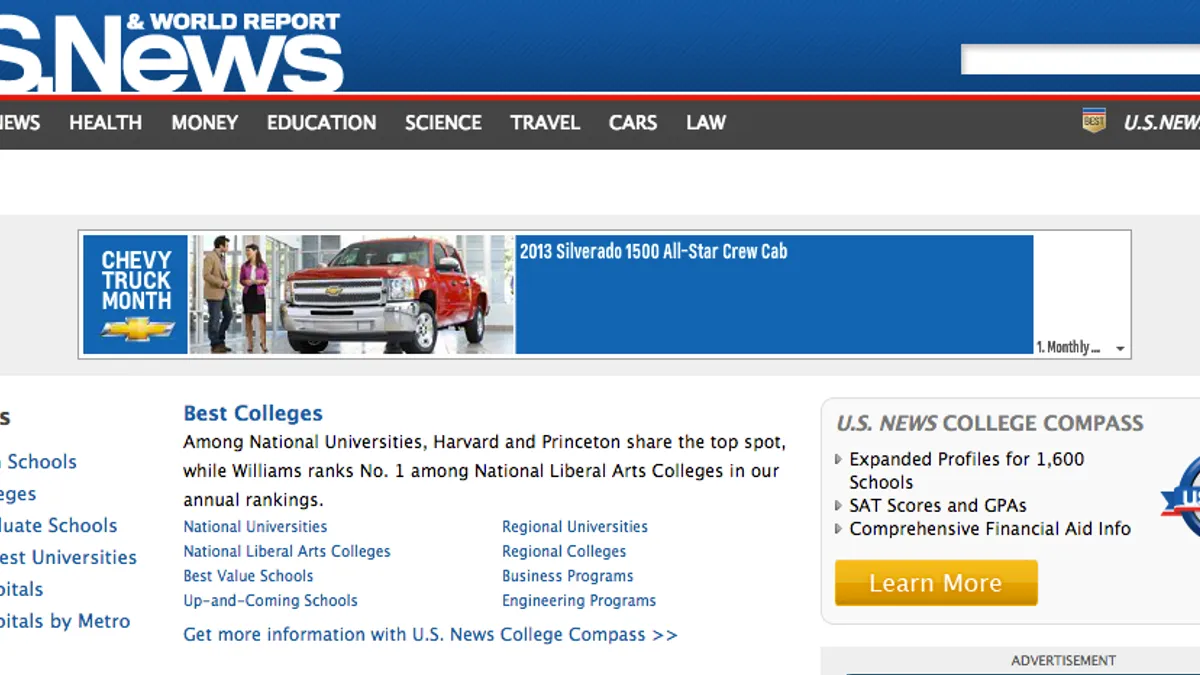Dive Brief:
- The number of colleges that reported incorrect data to a popular "best colleges" ranking from U.S. News & World Report last year is rising, with eight more institutions saying they supplied erroneous information that changed their positions on the list, according to U.S. News. The misreported data included six-year graduation rates, enrollment numbers, faculty member salaries and average need-based grants.
- The institutions providing incorrect data — Austin Peay State, Dakota Wesleyan, Drury, Hampton, Oklahoma City, Saint Louis and Saint Martin's universities and Randolph College — will be punished by being listed as "unranked," but only until Sept. 10 when the next edition of the rankings comes out.
- The U.S. News rankings are used by many students and their families to help decide which undergraduate and graduate programs they might apply to. While institution officials often criticize the rankings, they also boast about favorable positions on the list.
Dive Insight:
This is not the first time in recent years bad data was reported to U.S. News. George Washington University in 2012 and Tulane University in 2013 admitted they supplied erroneous information, while Temple University's business school drew national attention this year after officials admitted that incorrect data intentionally were submitted to U.S. News for several years. In the case of the eight institutions, administrators claim the erroneous information they provided was simply human error or that U.S. News changed its criteria, which resulted in confusion and faulty numbers.
Some presidents, provosts and admissions officials say they don't fill out the forms themselves because they don't have a deep understanding of other schools' programs and say they doubt many administrators do.
Tens of thousands of students and parents use the U.S. News and other college rankings to help them decide on what colleges to apply to. But some groups argue that the rankings are "unproductive, meaningless [and] even harmful" because they encourage institutions to game the system.
Jim Jump, the academic dean and director of college counseling at St. Christopher's School in Richmond, Va., wrote last year that "it's time to ask whether the U.S. News & World Report college rankings should be considered fake news." He argued that the rankings assume a college's value "consists in the name brand ... rather than the college experience," and that rankings can't measure the quality of the educational experience.
Universities and colleges that report data to U.S. News and other ratings organizations should consider the consequences of providing false or misleading information. Is moving up a few spots in the rankings worth the bad publicity that will be unleashed if the data is found to be incorrect? What impact will the falsehoods have on applications, enrollment and even donations?








